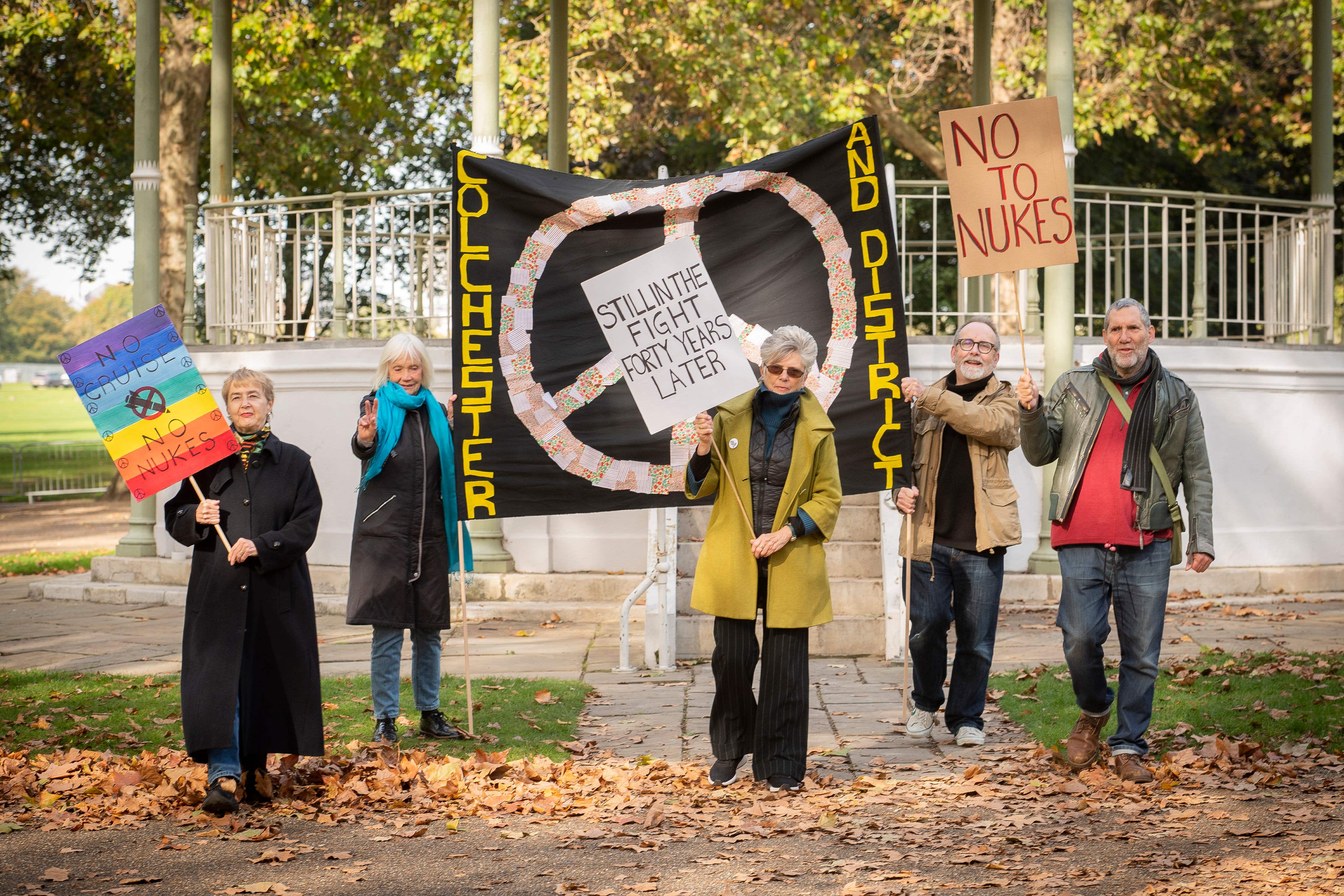Oxfam reunites peace march protesters forty years on
The original demonstration, which took place on October 22 1983, saw 300,000 people gather in Hyde Park to protest against nuclear missiles.

Your support helps us to tell the story
From reproductive rights to climate change to Big Tech, The Independent is on the ground when the story is developing. Whether it's investigating the financials of Elon Musk's pro-Trump PAC or producing our latest documentary, 'The A Word', which shines a light on the American women fighting for reproductive rights, we know how important it is to parse out the facts from the messaging.
At such a critical moment in US history, we need reporters on the ground. Your donation allows us to keep sending journalists to speak to both sides of the story.
The Independent is trusted by Americans across the entire political spectrum. And unlike many other quality news outlets, we choose not to lock Americans out of our reporting and analysis with paywalls. We believe quality journalism should be available to everyone, paid for by those who can afford it.
Your support makes all the difference.Oxfam has marked one of the largest public demonstrations in British history by reuniting a group of protesters from the 1983 march for peace in London’s Hyde Park.
The original demonstration, which took place on October 22 1983, saw 300,000 people gather in Hyde Park to protest against the presence of nuclear missiles in London.
Oxfam worked with the original demonstrators to recreate images on the eve of the 40-year anniversary of the march.
The protesters included Kate Hudson, general secretary of CND, and Dave Wainwright, one of the original organisers of the march.
While this march happened 40 years ago, we still believe in the power of protest and the impact it can have on driving social change
Oxfam also surveyed 2,000 adults of different ages on attitudes towards the modern-day fight for equality.
The findings showed that just over half of 18-34 year olds said they take inspiration from the protesters of the past.
Johnty Gray, individual engagement director at Oxfam said: “While this march happened 40 years ago, we still believe in the power of protest and the impact it can have on driving social change.
“Our research shows that different generations have much in common when it comes to fighting for issues like climate change and that the younger generations are inspired by their parents and grandparents.
“It’s clear that young people believe their success in changing the world for the better will be significantly boosted if the older generation do what they can to stay in the fight.”
Kate Hudson said: “One of the amazing things about that demonstration that I remember so clearly was the intergenerational nature of it.
“There were people literally of every age group, tiny kids in buggies, people of my mum’s generation, and then people – really senior people – within our society and our organisation.
“The peace movement has always been like that, embracing all walks of life, every background, every community and every age. that’s how we are now and going forward. Everyone has a role to play.
“Those kids have been able to grow up, and are still part of the movement today, and hopefully their kids will be onside now.
“We’re facing terrible dangers, nuclear dangers today, but the peace movement, the anti-nuclear movement, progressive people everywhere, we are standing together and standing firm to say “we want a world of peace”.
Dave Wainwright said: “At the time I was working for CND and I was one of the co-ordinators of the march, which without all the social media that we have today was a very different sort of process than nowadays.
“I recognise the world is a more complicated place than perhaps I imagined when I was younger and the arguments are perhaps more complicated. But fundamentally, war is bad, nuclear weapons are bad, children are good.
“That’s pretty much all there is to it.”